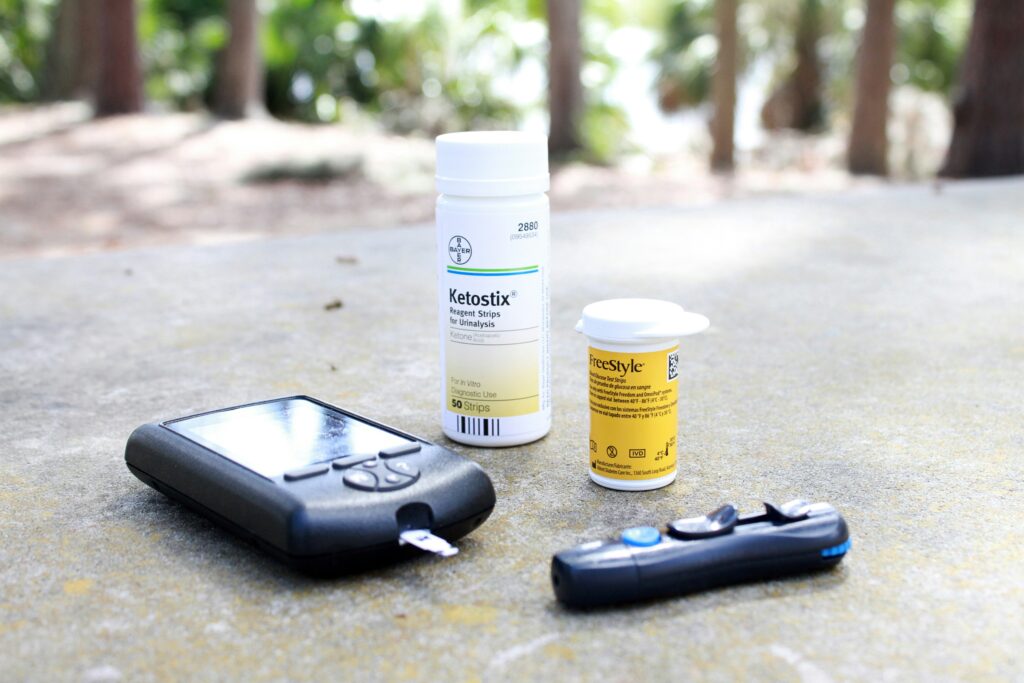If you or someone you know is living with HIV/AIDS, it’s important to understand how Obamacare coverage can provide comprehensive and affordable healthcare options. With the implementation of the Affordable Care Act, individuals with pre-existing conditions like HIV/AIDS cannot be denied coverage or charged exorbitant premiums. This article explores the various aspects of Obamacare coverage for people living with HIV/AIDS, including the benefits and protections offered, enrollment options, and resources to help navigate the system.

Table of Contents
ToggleIntroduction to Obamacare
Definition of Obamacare
Obamacare, officially known as the Affordable Care Act (ACA), is a comprehensive healthcare reform law enacted in the United States in 2010. It aimed to expand access to affordable healthcare coverage, improve the quality of care, and protect individuals from discriminatory practices by insurance companies. The law brought about significant changes to the healthcare system, with a particular focus on ensuring that individuals with pre-existing conditions, like HIV/AIDS, are not denied coverage or charged higher premiums.
Purpose of Obamacare
The key purpose of Obamacare is to ensure that all individuals have access to affordable and quality healthcare coverage. It sought to address several longstanding issues within the healthcare system, such as limited access to insurance for individuals with pre-existing conditions, high costs of healthcare, and lack of comprehensive coverage options. By implementing various provisions, Obamacare aimed to bring about positive changes, including expanded coverage options, essential health benefits, elimination of pre-existing condition exclusions and annual limits, and improved preventive care services.
Key provisions of Obamacare
Obamacare introduced several key provisions that significantly impacted healthcare coverage. These provisions include the creation of health insurance marketplaces, the expansion of Medicaid, the implementation of essential health benefits, the elimination of pre-existing condition exclusions, the prohibition of annual and lifetime dollar limits, and improved preventive care services. These provisions collectively aimed to make healthcare coverage more accessible, affordable, and comprehensive for individuals across the United States.
Coverage Options for HIV/AIDS
Overview of healthcare coverage options
When it comes to healthcare coverage for individuals living with HIV/AIDS, there are several options available. These options include individual health insurance plans, employer-sponsored health insurance, Medicaid and Medicare, Qualified Health Plans (QHPs), and the health insurance marketplace. Each option has its own eligibility criteria, benefits, and costs, allowing individuals to choose the coverage that best suits their needs and circumstances.
Individual health insurance plans
Individual health insurance plans are policies that individuals purchase directly from insurance companies. These plans are not provided through an employer or government program. They typically offer a range of coverage options, including varying levels of benefits and cost-sharing. For individuals with HIV/AIDS, it is essential to carefully review the plan’s coverage for HIV/AIDS-related services, including prescription medications, specialist visits, and preventive care.
Employer-sponsored health insurance
Many individuals have access to health insurance coverage through their employers. Employer-sponsored health insurance plans offer a range of benefits, and the coverage for HIV/AIDS services may vary. It is crucial to understand the plan details, including any exclusions or restrictions related to HIV/AIDS treatments and medications. In some cases, employers may offer comprehensive coverage options that provide access to necessary care, including antiretroviral therapy (ART) and regular check-ups.
Medicaid and Medicare
Medicaid and Medicare are government-funded healthcare programs that provide coverage for eligible individuals. Medicaid is aimed at low-income individuals and families, while Medicare primarily serves individuals who are 65 years and older or those with certain disabilities. Both programs offer comprehensive coverage for HIV/AIDS-related services, including medication coverage, specialist visits, and preventive care. Eligibility criteria for these programs vary, so it is important to determine if you meet the requirements.
Qualified Health Plans (QHPs)
Under Obamacare, Qualified Health Plans (QHPs) were introduced to provide standardized and comprehensive coverage options. These plans are available through the health insurance marketplace and must meet certain criteria set by the ACA. QHPs offer essential health benefits, including coverage for HIV/AIDS services, preventive care, and prescription drugs. Individuals can compare different QHPs based on their specific healthcare needs and choose the one that offers the best coverage for HIV/AIDS treatments and medications.
Health insurance marketplace
The health insurance marketplace, also known as the health insurance exchange, is a platform established under Obamacare to help individuals compare and enroll in health insurance plans. It provides a centralized marketplace where individuals can explore different coverage options, including QHPs. The marketplace also offers financial assistance in the form of subsidies and tax credits to help make healthcare coverage more affordable. Individuals living with HIV/AIDS can utilize the health insurance marketplace to find and enroll in a plan that meets their healthcare needs.
Essential Health Benefits
Inclusion of HIV/AIDS as an essential health benefit
Under Obamacare, HIV/AIDS services are included as essential health benefits, ensuring that all health insurance plans must provide coverage for these services. This inclusion is vital in guaranteeing access to necessary care, treatment, and support for individuals living with HIV/AIDS. Whether through individual health insurance plans, employer-sponsored coverage, Medicaid, Medicare, or QHPs obtained through the marketplace, individuals can expect coverage for HIV/AIDS-related services, including medications, specialist visits, and necessary screenings.
Required coverage for HIV/AIDS services
Obamacare mandates that health insurance plans cover a broad range of HIV/AIDS services. This includes the cost of medications, such as antiretroviral therapy (ART), which is essential for managing the virus. Additionally, plans must cover specialist visits, laboratory tests, preventive care, counseling, and mental health services related to HIV/AIDS. By requiring comprehensive coverage for these services, individuals with HIV/AIDS can receive the care they need without facing significant financial burdens.
Preventive care services for HIV/AIDS
As part of Obamacare, preventive care services are covered at no cost to the individual. This means that individuals with HIV/AIDS can access regular screenings, counseling, and preventive services without having to pay out-of-pocket expenses. Preventive care plays a crucial role in managing HIV/AIDS by allowing early detection of the virus, ensuring interventions to prevent transmission, and promoting overall health and well-being. The inclusion of preventive care services as an essential health benefit under Obamacare is a significant step towards improved HIV/AIDS care and prevention.
No Discrimination for Pre-existing Conditions
Elimination of pre-existing condition exclusions
Prior to Obamacare, insurance companies could deny coverage or charge higher premiums based on an individual’s pre-existing conditions, including HIV/AIDS. However, under Obamacare, these exclusions have been eliminated. Insurance companies are no longer allowed to deny coverage or charge higher premiums based on pre-existing conditions. This protection ensures that individuals with HIV/AIDS have equal access to healthcare coverage, regardless of their health status.
Guaranteed availability of coverage
Under Obamacare, individuals cannot be denied health insurance coverage due to their HIV/AIDS status. Insurance companies are required to make coverage available to all applicants, irrespective of their pre-existing conditions. This provision provides individuals with the assurance that they can obtain the coverage they need, including the necessary services and treatments for managing their HIV/AIDS.
Prohibition of HIV/AIDS-related discrimination
Obamacare also prohibits insurance companies from engaging in HIV/AIDS-related discrimination. Insurance companies cannot deny or limit coverage based on an individual’s HIV/AIDS status. Additionally, they are prohibited from charging higher premiums to individuals with HIV/AIDS or imposing any other discriminatory practices. This protection ensures that individuals with HIV/AIDS can access the same coverage options and receive the same benefits as individuals without this condition.

Elimination of Annual and Lifetime Dollar Limits
Protections against financial limitations on coverage
Historically, many insurance plans imposed annual or lifetime dollar limits on coverage, placing significant financial burdens on individuals with chronic conditions like HIV/AIDS. However, under Obamacare, these limitations have been eliminated. Insurance plans can no longer impose annual or lifetime dollar limits on essential health benefits, including HIV/AIDS services. This ensures that individuals with HIV/AIDS have access to the necessary care and treatments without being subjected to financial hardship.
Unlimited coverage for HIV/AIDS treatments
Due to the elimination of annual and lifetime dollar limits, individuals with HIV/AIDS can receive unlimited coverage for their necessary treatments. This includes access to antiretroviral therapy (ART), which is crucial for managing HIV in the long term. Without limitations on coverage, individuals can receive the ongoing care and treatments they need to effectively manage their HIV/AIDS, promoting better health outcomes and quality of life.
Cost-sharing limits for HIV/AIDS medication
Obamacare also introduced cost-sharing limits for prescription medications, including those used to treat HIV/AIDS. These limits place a cap on the amount individuals have to pay out-of-pocket for their medications, ensuring that costs are manageable and affordable. This provision is particularly important for individuals with HIV/AIDS, as the cost of medications can be significant. By setting cost-sharing limits, Obamacare helps reduce the financial burden associated with necessary HIV/AIDS medications and ensures individuals can access the treatments they need without undue hardship.
Coverage for HIV/AIDS Testing and Screening
No-cost HIV testing
One of the key preventive measures for managing HIV/AIDS is regular testing to ensure early detection and treatment. Obamacare requires all health insurance plans to cover HIV testing at no cost to the individual. This means that individuals can undergo HIV testing without any out-of-pocket expenses, promoting regular screening and early intervention.
Routine screening and preventive care
Apart from HIV testing, health insurance plans under Obamacare are also required to cover routine screenings and preventive care for individuals with HIV/AIDS. This includes regular check-ups, blood work, and other necessary tests to monitor the virus and assess overall health. Routine screening and preventive care play a vital role in early detection, management, and prevention of transmission of HIV/AIDS.
Coverage for sexually transmitted disease (STD) testing
In addition to HIV testing, Obamacare also mandates coverage for testing and screening for other sexually transmitted diseases (STDs). This is crucial when managing HIV/AIDS, as individuals with the virus may be at higher risk of contracting other STDs. By providing coverage for comprehensive STD testing, health insurance plans support the overall health and well-being of individuals living with HIV/AIDS.

Prescription Drug Coverage
Prescription drug coverage under Obamacare
Obamacare requires health insurance plans to provide coverage for essential prescription drugs, including those used to treat HIV/AIDS. This ensures that individuals with HIV/AIDS can access the necessary medications, such as antiretroviral therapy (ART), to manage their condition effectively. Prescription drug coverage under Obamacare helps alleviate the financial burden associated with HIV/AIDS medications and ensures that individuals can afford the treatments they need to maintain their health.
Coverage for antiretroviral therapy (ART)
Antiretroviral therapy (ART) is the cornerstone of HIV/AIDS treatment. Obamacare ensures that health insurance plans cover ART, making it accessible to individuals living with the virus. ART is essential in suppressing the replication of the virus, improving immune function, and preventing the progression of HIV/AIDS. With coverage for ART, individuals with HIV/AIDS can consistently receive the medications they need to maintain their health and quality of life.
Access to necessary HIV/AIDS medications
In addition to ART, individuals with HIV/AIDS may require other medications to manage associated conditions or complications. Obamacare ensures that health insurance plans cover a wide range of necessary HIV/AIDS medications, including medications to treat opportunistic infections, manage side effects, and address comorbidities. This comprehensive coverage ensures that individuals can access the medications they need to effectively manage their HIV/AIDS and associated health needs.
Preventive Care Services
Preventive care for individuals with HIV/AIDS
Preventive care is critical for individuals with HIV/AIDS to manage their condition effectively and prevent the transmission of the virus. Obamacare requires health insurance plans to cover a range of preventive care services specifically tailored for individuals with HIV/AIDS. These services may include counseling, regular screenings, immunizations, and other interventions aimed at promoting overall health and well-being.
Regular check-ups and screenings
Regular check-ups and screenings are essential components of preventive care for individuals with HIV/AIDS. Obamacare ensures that health insurance plans cover routine visits to healthcare providers, allowing individuals to receive necessary medical attention, discuss any concerns, and undergo regular screenings to monitor their HIV/AIDS status and overall health. These regular check-ups are essential in managing the virus, detecting any potential complications early, and ensuring prompt intervention.
Vaccination coverage for HIV-positive individuals
Vaccinations play a crucial role in preventing infections and complications for individuals living with HIV/AIDS. Under Obamacare, health insurance plans are required to cover vaccinations recommended for individuals with HIV/AIDS. This includes vaccinations for influenza, pneumonia, and other preventable diseases. By providing coverage for vaccinations, Obamacare supports the overall health and well-being of individuals with HIV/AIDS, reducing the risk of additional health complications.
Access to Specialty Care and Treatment
Access to HIV/AIDS specialists
Individuals with HIV/AIDS often require specialized care from healthcare providers who have expertise in managing the virus. Obamacare ensures that health insurance plans provide access to HIV/AIDS specialists by including them in their provider networks. This means that individuals can receive care from physicians, infectious disease specialists, and other healthcare professionals who have the necessary knowledge and experience in treating HIV/AIDS. Access to specialists is crucial in ensuring that individuals receive the most up-to-date and effective care for their condition.
In-network and out-of-network care
Health insurance plans under Obamacare typically designate providers as either in-network or out-of-network. In-network providers have an established relationship with the insurer and offer services at negotiated rates, while out-of-network providers may have higher costs or limitations on coverage. It is important for individuals with HIV/AIDS to be aware of the network status of healthcare providers they want to receive care from to ensure their treatments and services are covered adequately. In-network providers typically offer better coverage and accessibility, although out-of-network care may also be available under certain circumstances.
Continuity of care provisions
Obamacare includes continuity of care provisions, ensuring that individuals with HIV/AIDS can continue receiving care and treatment from their established healthcare providers, even when there are changes in their health insurance coverage. The provisions aim to minimize disruptions in healthcare and ensure that individuals can continue with their existing treatment plans and access the necessary HIV/AIDS care from trusted providers. Continuity of care provisions provide stability and support for individuals with HIV/AIDS, allowing them to access seamless and comprehensive healthcare.
Conclusion
Importance of understanding Obamacare coverage
Understanding Obamacare coverage for HIV/AIDS is crucial for individuals living with the virus to access the care and treatment they need. The comprehensive provisions of Obamacare ensure that individuals are not denied coverage, face discriminatory practices, or experience financial limitations when seeking healthcare services related to HIV/AIDS. By familiarizing oneself with the available coverage options, individuals can make informed decisions about their healthcare, ensuring they receive the necessary treatments and support for managing their HIV/AIDS effectively.
Improving access to HIV/AIDS care and treatment
Obamacare has brought about substantial improvements in access to HIV/AIDS care and treatment by mandating coverage for essential services, medications, screenings, and preventive care. The inclusion of HIV/AIDS-related services as essential health benefits and the elimination of pre-existing condition exclusions have significantly expanded insurance coverage options for individuals with HIV/AIDS. This has resulted in improved access to necessary care, reduced financial burden, and better overall health outcomes for those living with HIV/AIDS.
Continued advocacy for comprehensive healthcare coverage
While Obamacare has made significant strides in improving healthcare coverage for individuals with HIV/AIDS, continued advocacy is necessary to ensure comprehensive and accessible coverage for all. Efforts to protect and strengthen the provisions of Obamacare, expand Medicaid eligibility, and further reduce healthcare costs are essential in ensuring that individuals with HIV/AIDS and other chronic conditions can access the care and treatment they need to live healthy and fulfilling lives.

